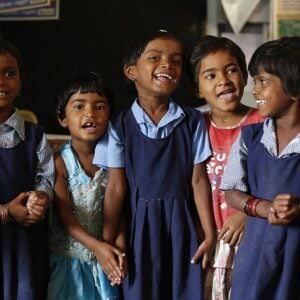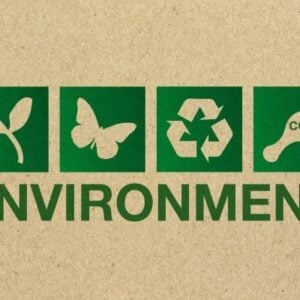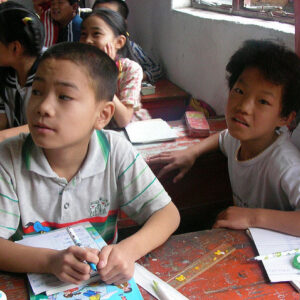Across Africa, millions of students are increasingly receiving nutritious school meals as governments take ownership of programmes formerly run by the World Food Programme (WFP), marking a transformative shift in child nutrition, education, and local food systems. At Olympic Secondary School in Nairobi’s sprawling Kibera informal settlement, 17-year-old Mercy Mmboga tends to rows of spinach growing in recycled plastic pipes in the school garden. She learned hydroponics, a soil-free farming method, in her agriculture class and marvels at the efficiency of growing crops on a small patch of land. Twice a week, students harvest these greens, which form part of the hearty lunches served to the school’s 1,200 students, providing a vital nutritional boost.
Not long ago, WFP would have been responsible for providing these meals. However, since 2018, Kenya’s Government has fully taken over the national school meals programme, with WFP providing only technical support, including the installation of hydroponics infrastructure. Under the government’s leadership, school meals coverage in Kenya has surged to 2.6 million children in 2024, up from 1.8 million in 2023. Authorities aim to expand this coverage further, targeting universal provision for 10 million children by 2030.
Kenya’s achievements reflect a broader global trend. Worldwide, at least 466 million children now receive school meals through government-led programmes, a 20 percent increase over four years. In middle-income countries, WFP has nearly halved its direct school meals assistance as national governments increasingly assume responsibility. Sub-Saharan Africa has witnessed some of the most striking progress, with 20 million additional children benefiting from government-led school meals since 2022. Today, 71.5 million students across the continent enjoy school-provided meals or snacks, with leaders recognizing these programmes as essential investments in health, education, and national development.
“Leadership in Africa has really stepped up,” said Carmen Burbano, WFP’s Director of School Meals, noting Kenya, Rwanda, and Benin as examples of countries where political commitment has translated into significant programme growth. “It’s a matter of political will and a programme that is now an established policy. Leaders are responding in a very important way for kids in those countries.”
In Kenya, the government’s strategy goes beyond expanding school meals. It aims to embed environmentally sustainable practices, such as hydroponics, into the programme while strengthening local food systems. WFP supports these initiatives by helping schools grow food on-site or source it from local farmers. Studies show that every US$1 invested in such strategies can generate US$7 to US$35 in economic returns. In Eastern Africa alone last year, over 32,000 metric tons of food were sourced from more than 18,000 farmers, injecting nearly US$16 million into local economies. At Olympic Secondary School, hydroponics not only allows vegetables to grow faster and with less water—a critical advantage in a drought-prone region—but also inspires students like Mercy to consider future careers in agriculture.
Elsewhere in Africa, locally sourced school meals are empowering smallholder farmers while improving child nutrition. In Rwanda, all 4.5 million pupils receive school meals, with farmers like Clementine Mukandayisenga in Kayonza district supplying vegetables through a WFP-supported cooperative. Mukandayisenga notes that selling to schools has enabled her family to save money and invest in land, while her children benefit from improved nutrition and educational outcomes. In Burundi, school meals procured locally increased farmers’ incomes by 50 percent in 2024 and created jobs in cooperative networks. In Benin, where government-led school meals rely on local growers, nine-year-old Schékina Ahanhoto attests to the positive effects of the programme on her learning and health. In southern Malawi, research indicates that each US$1 spent on school meals generates US$8 in broader benefits, with headmaster Felix Malinda observing higher student enrollment as families are better able to feed their children.
Despite these successes, challenges remain. Conflict, funding shortfalls, and logistical constraints continue to disrupt school meal provision in some regions. In Sudan, ongoing civil war has forced 16 million children out of school, disrupted food supply chains, and closed educational facilities. Nonetheless, WFP-supported take-home rations and locally procured school meals reached over half a million children in 2024, with US$6 million in cereals purchased from local farmers. In eastern Sudan’s Al Hafayer, children attend classes at a makeshift school in an abandoned hospital, receiving WFP take-home rations while volunteers ensure their education continues. Teacher Hassan emphasizes the importance of sufficient meals for children’s learning and health, while volunteer teacher Hanaa, from Sennar, echoes the same commitment despite the challenging circumstances.
WFP’s school feeding programmes across Africa are supported by a range of partners, including the African Development Bank, Burundi, Education Cannot Wait, France, Japan, Kenya, the Republic of Korea, Share the Meal, and the UN Multi-Partner Trust Fund Office. These programmes not only nourish children and improve educational outcomes but also stimulate local economies, strengthen farmer livelihoods, and foster resilience in communities facing persistent challenges. Through the leadership of African governments, the continent is demonstrating that sustainable, locally driven school meal programmes are a key pathway to a healthier, better-educated, and more resilient generation.







